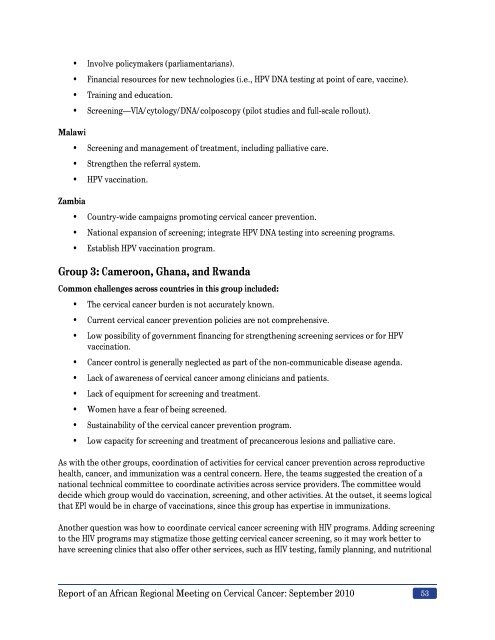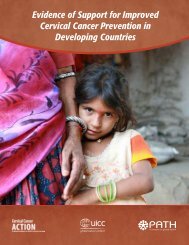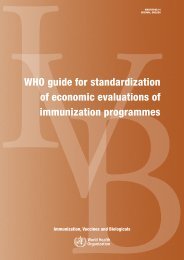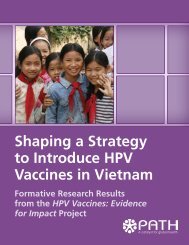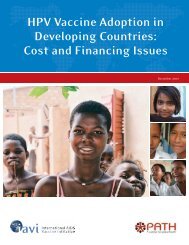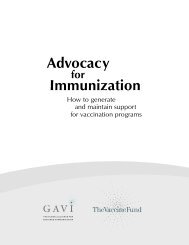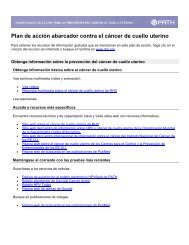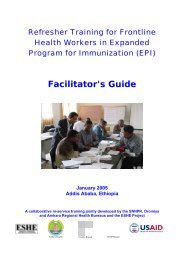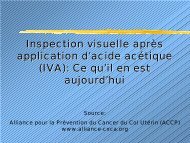Download file, English (1 MB PDF) - RHO
Download file, English (1 MB PDF) - RHO
Download file, English (1 MB PDF) - RHO
Create successful ePaper yourself
Turn your PDF publications into a flip-book with our unique Google optimized e-Paper software.
Malawi<br />
Zambia<br />
• Involve policymakers (parliamentarians).<br />
• Financial resources for new technologies (i.e., HPV DNA testing at point of care, vaccine).<br />
• Training and education.<br />
• Screening—VIA/cytology/DNA/colposcopy (pilot studies and full-scale rollout).<br />
• Screening and management of treatment, including palliative care.<br />
• Strengthen the referral system.<br />
• HPV vaccination.<br />
• Country-wide campaigns promoting cervical cancer prevention.<br />
• National expansion of screening; integrate HPV DNA testing into screening programs.<br />
• Establish HPV vaccination program.<br />
Group 3: Cameroon, Ghana, and Rwanda<br />
Common challenges across countries in this group included:<br />
• The cervical cancer burden is not accurately known.<br />
• Current cervical cancer prevention policies are not comprehensive.<br />
• Low possibility of government financing for strengthening screening services or for HPV<br />
vaccination.<br />
• Cancer control is generally neglected as part of the non-communicable disease agenda.<br />
• Lack of awareness of cervical cancer among clinicians and patients.<br />
• Lack of equipment for screening and treatment.<br />
• Women have a fear of being screened.<br />
• Sustainability of the cervical cancer prevention program.<br />
• Low capacity for screening and treatment of precancerous lesions and palliative care.<br />
As with the other groups, coordination of activities for cervical cancer prevention across reproductive<br />
health, cancer, and immunization was a central concern. Here, the teams suggested the creation of a<br />
national technical committee to coordinate activities across service providers. The committee would<br />
decide which group would do vaccination, screening, and other activities. At the outset, it seems logical<br />
that EPI would be in charge of vaccinations, since this group has expertise in immunizations.<br />
Another question was how to coordinate cervical cancer screening with HIV programs. Adding screening<br />
to the HIV programs may stigmatize those getting cervical cancer screening, so it may work better to<br />
have screening clinics that also offer other services, such as HIV testing, family planning, and nutritional<br />
Report of an African Regional Meeting on Cervical Cancer: September 2010 53


